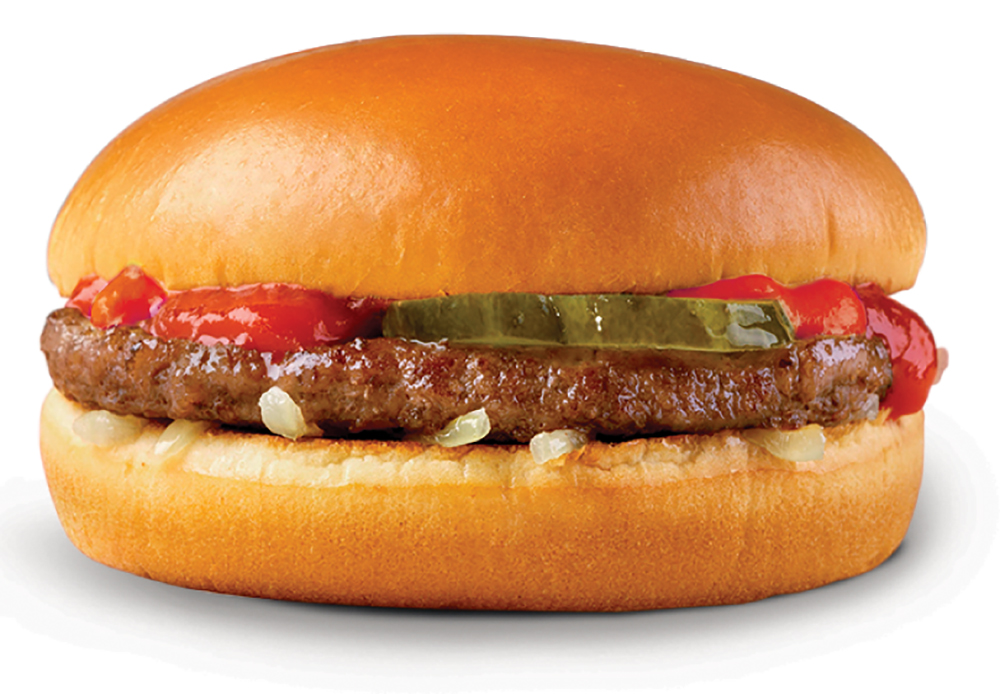
Mishap at Dinner
A beautiful young Jewish family was enjoying dinner together, when the nine-year-old son mistakenly took a ben yomo (used that day) dairy knife to cut the hot hamburger his mother just placed on his plate. Does the hamburger, thereby, become forbidden?
Kli Sheni
We have arrived at the debate regarding the status of beliot regarding a kli sheni. We refer to a pot in which cooking occurs as a kli rishon. When items cooked in a kli rishon are placed on a plate, they attain the status of a kli sheni. The mishna (Shabbat 42) teaches that cooking does not occur in a kli sheni. The question is whether the same applies to beliot. The Shulchan Aruch (Yoreh Deah 105:2) presents the debate and issues a ruling:
“The heat of a kli sheni does not cook. And there are those who say that it likewise does not emit or absorb. And there are those who say that in-any-event it does emit and absorb, and it makes things forbidden to the taking of a klipah (that is the thickness of a klipah (shell) is forbidden, but the rest of the meat is still permissible). And it is appropriate to be careful in (this) matter lechatchila but, bedieved, it is permitted without klipah, and mere rinsing is sufficient.”
The Chochmat Adam (59:6) follows the Shulchan Aruch and is lenient in case of loss. In our case, the child would not have his dinner, and thus, there appears to be room to be lenient. However, the knife should be koshered since it is easy.
Davar Gush:
The Ashkenazic Approach
However, Tosafot (Shabbat 40b, s.v. U’shma) poses a fundamental question: Why should there be a difference between a kli rishon and a kli sheni? The sole criterion of whether bishul occurs should be if the water is yad soledet bo! Tosafot answers that bishul does not happen in a kli sheni, despite the water being yad soledet bo. This is because the walls of the kli sheni cool down the water. Tosafot explains that water that is in the process of being cooled cannot cook.
The Acharonim debate whether the rule that cooking does not occur in a kli sheni applies even when Tosafot’s explanation is irrelevant. Tosafot’s answer seems to apply only to liquids held in a kli sheni but not to solids (davar gush) contained by a kli sheni. The walls of the container only have the effect of cooling down liquid contents. Thus, the Maharshal (Yam Shel Shlomo, Chullin 8:71) rules that solids can be cooked even in a kli sheni. However, the Rama (Yoreh Deah 94:7 and 105:3) does not distinguish between liquids and solids.
Later authorities found it difficult to resolve this dispute. The Shach (Yoreh Deah 105:8) writes, “I cannot decide which opinion is correct.” Accordingly, it is not surprising to find that the Mishna Berura (318:45, 65 and 118) and Aruch Hashulchan (Yoreh Deah 94:32 and 105:20) rule that one should be concerned with the stringent view of the Maharshal. Therefore, one should not pour oil or garlic on a hot potato, even in a kli sheni on Shabbat. Regarding kashrut, the Chochmat Adam (60:12) rules stringently except in case of great loss. He rules if there is duchka desakina, the pressure of a knife (as in our case), one must be strict even in case of great loss.
Davar Gush:
The Sephardic Approach
However, Sephardic poskim follow the Shulchan Aruch who does not distinguish between liquids and a davar gush (Rav Ovadia Yosef (Teshuvot Yabia Omer 11:32, Halichot Olam 4:50, and Chazon Ovadia, Shabbat 4:367) and Rav Benzion Abba Shaul, Ohr LeTziyon 2:30:16).
Conclusion: Sephardim Versus Ashkenazim
Since the family that encountered this problem was Ashkenazic, the ruling was strict. However, if they were Sephardic, we could have permitted the hamburger (Yalkut Yosef Yoreh Deah 98:25).
Rabbi Jachter serves as the rav of Congregation Shaarei Orah, rebbe at Torah Academy of Bergen County, and a get administrator with the Beth Din of Elizabeth. Rabbi Jachter’s 18 books, including a brand new one entitled, “In the King’s Court: Exploring Megillat Esther—Our Most Subtle Victory,” may be purchased at Amazon and Judaica House.












